Sudan timeline July-September 2024: Thousands starving as war continues without mercy
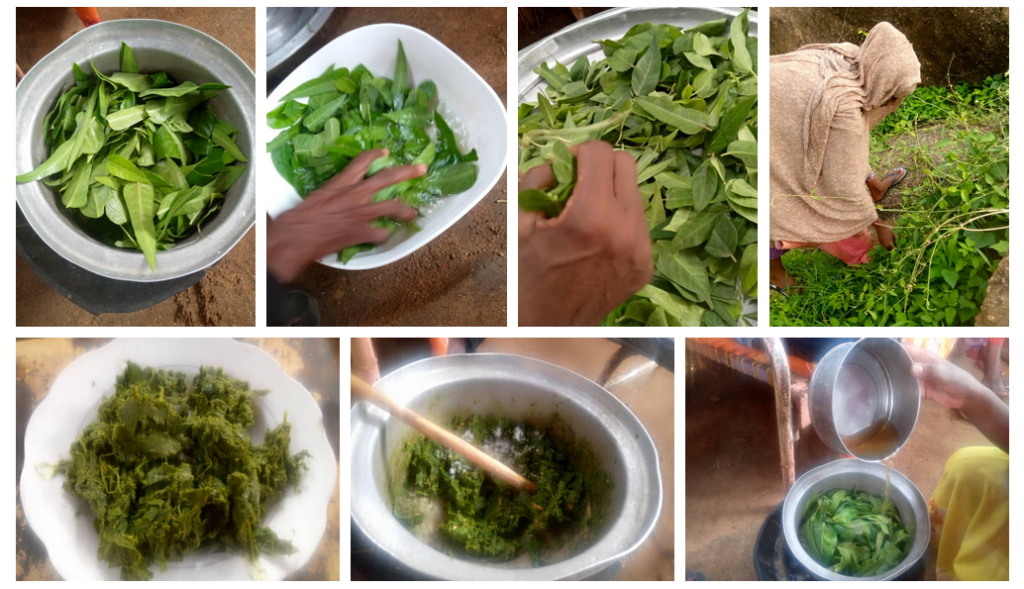
Preparing tree leaves for consumption in Delling, South Kordofan, July 2024 (Photo: Supplied)
The violent armed conflict that erupted between the Sudanese Armed Forces (SAF) and the paramilitary Rapid Support Forces (RSF) in mid-April 2023 continues without mercy for the tens of millions of Sudanese bearing the dire brunt of the violence. Women are raped or being forced to have sex with soldiers to be able to feed their children.
The horrendous humanitarian situation in the country seems to fall on deaf ears in the world. US-sponsored talks in Geneva result in the reopening of a Chad-Darfur border crossing for three months for the transport of humanitarian aid.
Despite repeated calls on the belligerents to agree to a ceasefire, battles continue. The Sudanese army launches a major ground offensive in Khartoum at the end of September, while Sudan’s Sovereignty Council Chairman and SAF Commander-in-Chief Lt Gen Abdelfattah El Burhan addresses the UN in New York, condemning the ‘regional support for the RSF’.
The UN Independent International Fact-Finding Mission for Sudan proposes a ‘peacekeeping mission’ to counter the ‘appalling human rights violations’ in the country.
July: As the fighting between the SAF and the RSF continues in Sudan, in particular for the control of El Fasher, the capital of North Darfur, various reports speak of a horrendous humanitarian situation in the country. International efforts to have the belligerents agree on the safe passage of aid to all parts of Sudan fail. Arbitrary detentions of people suspected of supporting ‘the enemy’ continue. Cholera is reported in Zamzam camp south of El Fasher.
July 1: Nine people are killed by RSF missiles in El Fasher. The SAF accuses the RSF of destroying part of the Halfaya Bridge, the last remaining link between Khartoum North (Khartoum Bahri) and Omdurman.
July 2: RSF soldiers bomb the Jebel Marra Hospital in El Fasher. The Egyptian FA Ministry invites Sudanese political, civil society, and religious leaders to ‘unifying talks‘ in Cairo.
July 3: Several cases of food poisoning are reported from Khartoum North. Abdelwahid Mohamed Nur, leader of the mainstream Sudan Liberation Movement (SLM-AW) in Darfur, appeals to the warring parties to spare the North Darfur capital.
July 4: The RSF capture El Meiram army base in West Kordofan, after taking control of the state capital El Fula. The SLM faction headed by Mustafa Tambour denies attacking a village in eastern Sudan.
July 5: Ethnic detentions continue in various parts of Sudan, in particular lawyers are targeted. More than 500 people went missing during the mass exodus from Singa, the capital of Sennar. Sudanese refugees in Ethiopia fear the escalating violence in Amhara. The Sudanese war is seriously impacting the country’s environment.
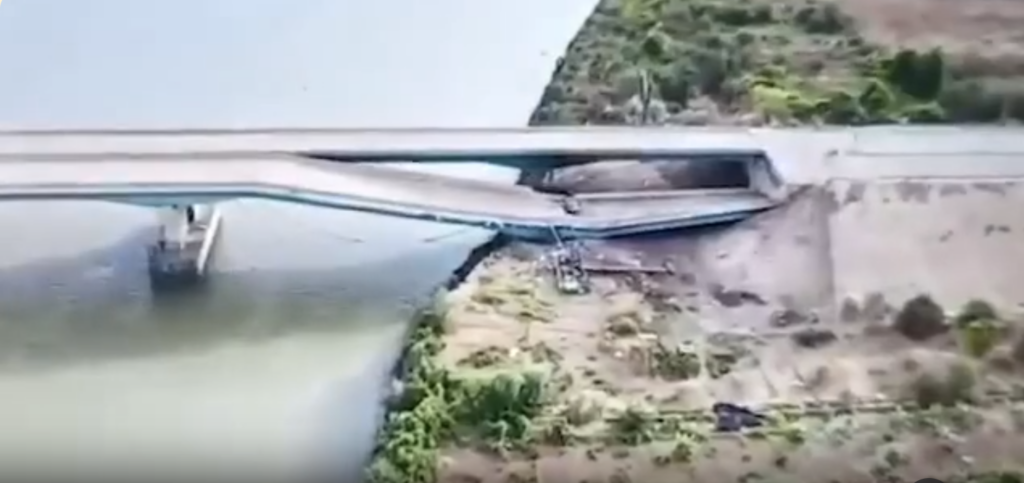
July 6: The conference of Sudanese political and civil society groups held in Cairo under the slogan Together to Stop the War ends with the participants stressing the need to provide urgent humanitarian aid. Military Intelligence agents interrogate the editor-in-chief of El Dawahi newspaper for hours.
July 7: The RSF shells the Saudi Hospital in El Fasher. The Strategic Initiative for Women in the Horn of Africa (SIHA) Network reports a surge in rapes in Sennar after the RSF entered the state.
July 8: The AU-established Expanded Mechanism for Sudan is preparing a comprehensive dialogue for Sudanese political groups in Addis Ababa.
July 8: The UN says that plundering, bureaucracy, and dwindling resources impede aid in Sudan. The International Organization for Migration (IOM) Displacement Tracking Matrix (DTM) reports that about 328,981 people fled El Fasher between April 1 and June 30.
July 9: Sudanese lawyers condemn ‘SAF and Minawi’s forces violent crackdowns on women‘. The Darfur Bar Association (DBA) denounces arbitrary detentions in Port Sudan. The EU supports health services for Sudanese in Libya. Ethiopian Prime Minister Abiy Ahmed meets with El Burhan in Port Sudan.
July 10: The US Dollar surpasses 2k Sudanese Pound mark in the parallel market. Médecins Sans Frontières (MSF) Sudan evacuates its ‘exhausted Khartoum team’.
July 11: The RSF launches multiple attacks on Sennar town and neighbouring Maiurno – which could sever key aid routes from Port Sudan.
July 12: UN expert raises alarm about the ‘unprecedented’ dire human rights situation in Sudan.
July 13: Delegations from the Sudanese de facto government and the RSF have arrived to Geneva for indirect discussions about the safe passage of aid in Sudan. Residents of Ed Damazin, the capital of Blue Nile state, report a continuous influx of displaced people from Sennar. The Nierteti-Zalingei road in Central Darfur reopens after more than five months.
July 14: SAF warplanes strafe the capitals of South and West Darfur. Ombadda block 5 in Omdurman has become uninhabitable.
July 15: Over 700,000 children in Sudan are unvaccinated as immunisation plummeted during the war. The AU preparatory meeting for the planned inter-Sudanese dialogue will organise the event after a ceasefire has been reached. An Emirates-led declaration voices urgent concern over Sudan’s food crisis. The UN Refugee Agency (UNHCR) relocates Sudanese refugees in Ethiopia to a more secure place. An appeal court in northern Sudan acquits a woman sentenced to death for collaborating with the RSF.
July 16: About 800,000 people are trapped in El Fasher, North Darfur, without water, food, and medical treatment, the World Health Organisation (WHO) says. The Sudanese Red Crescent mourns two of its volunteers who died in attacks on Sennar.
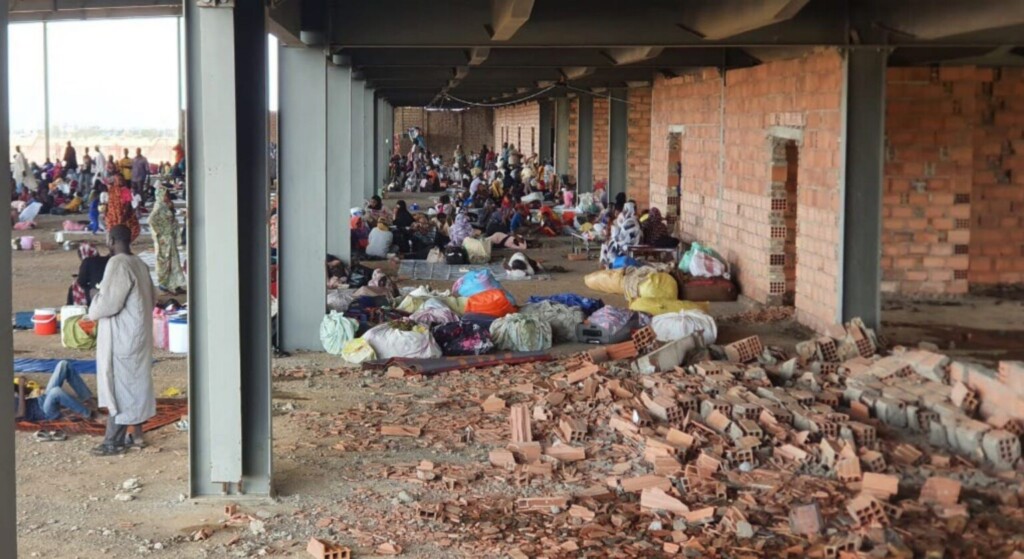
July 17: The International Committee of the Red Cross (ICRC) reminds Sudan’s warring parties of obligations under international humanitarian law. US Special Envoy to Sudan Tom Perriello condemns RSF’s killing of 23 people in a North Kordofan village. Nine Ethiopian policemen die in an attack near the Kumer camp for Sudanese refugees in Amhara. According to a Radio Dabanga report, the decimated Sudanese sugar industry ‘faces a bleak future’.
July 18: Lt Gen Abdelfattah El Burhan speaks with the president of the United Arab Emirates (UAE), accused by the Sudanese government of providing arms to the RSF. An army commander in Abu Jubeiha, South Kordofan, orders the removal of illegal mixers using cyanide in gold mining.
July 19: The indirect negotiations between the SAF and the RSF in Geneva conclude without an agreement about the safe passage of aid in Sudan.
July 20: Ethiopian gunmen attack the Awlala camp for Sudanese refugees in Amhara.
July 21: Sudan and Iran relations are fully restored after an eight-year hiatus.
July 22: People are dying of hunger in the neighbourhoods of old Omdurman. MSF reports about the ‘horrendous violence‘ observed by its teams in Sudan. SAF and RSF attacks on fuel sites have reportedly accelerated the collapse of the country’s economy. The Dabanga Verification Team finds that reports about the burning of the communications tower in Khartoum are only partly true. ‘Men in RSF uniforms’ shoot a muezzin dead in a mosque in Khartoum.
July 23: The USA says it has invited the SAF and RSF to new US-Saudi mediated ceasefire talks in Geneva in August. SIHA Network reports about the threats faced by women during the war. Medics in Zamzam camp for displaced people south of El Fasher report cases of cholera.
July 24: Amnesty International calls for a nation-wide arms embargo for Sudan. Fighting escalates in Sennar. Drones target a government building in River Nile state and a SAF base in White Nile state.
July 25: The Abu Shouk camp for displaced people in northern El Fasher is shelled. Mothers are feeding their children tree leaves in Delling, South Kordofan.
July 26: Shelters in Kassala are flooded after torrential rains. Three sisters are raped at gunpoint in Central Darfur.
July 28: RSF advisor says that they ‘will only withdraw from government buildings after a political deal’. Human Rights Watch (HRW) accuses the RSF of committing widespread acts of sexual violence in Khartoum.
July 29: At least 27 people die as RSF drones and artillery strafe El Fasher for three days. The UN condemns the ‘indiscriminate attacks’ on the North Darfur capital’s hospital, homes, and market. The Guardian reports about women in Omdurman who claim that having sex with SAF soldiers is the only way to access food. The Civil Aviation Authority reopens the airspace above eastern Sudan. Palm farmers in Northern State are worried about recurring wildfires.
July 30: A new UN report denounces the recruitment of children as combatants.
July 31: Lt Gen El Burhan survives a drone attack in Red Sea state. More than 20 tonnes of essential medicines have arrived in Port Sudan.
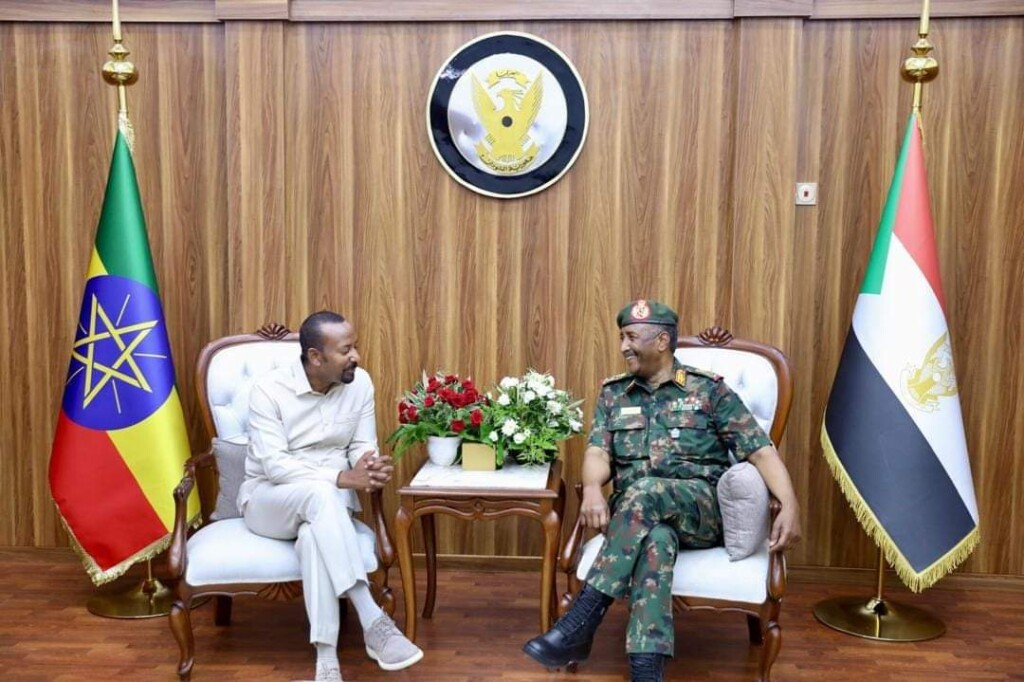
August: The Sudanese Air Forces continues to bombard residential areas, including camps for displaced people. The RSF continues to attack civilians in the areas under their control. UNHCR warns that humanitarian needs in Sudan have reached ‘epic proportions’. Famine is now also reported from Blue Nile state and the Nuba Mountains in South Kordofan. Cholera is further spreading in the country. Torrential rainfall worsens the suffering of many. New Geneva talks lead to a breakthrough when the Sovereignty Council agrees to reopen the Adré crossing at the Chad-Darfur border for three months for the transport of much-needed aid.
August 1: Famine is officially declared in the large Zamzam camp south of El Fasher. The RSF aid blockade in North Darfur endangers the lives of many children.
August 2: Health centres in Sennar, Darfur, and Kordofan report a dire shortage of medicines.
August 3: ‘Largest ground attack’ by the RSF on El Fasher so far kills 30, more RSF violence is reported from Blue Nile, El Gezira, and Khartoum. SAF Co-Deputy Commander-in-Chief Lt Gen Yasir El Atta vows ‘to continue the war until the RSF is eliminated or surrenders’.
August 4: Air raids on Zamzam camp seriously injure four children.
August 5: Prosecutor Karim Khan of the International Criminal Court (ICC) in the Hague tells the UN Security Council that terror ‘has become a common currency’ in Sudan. Displaced in the Sortony camps in North Darfur daily bury two to three children who died of hunger. Teachers and journalists form ‘a group to stop the war’.
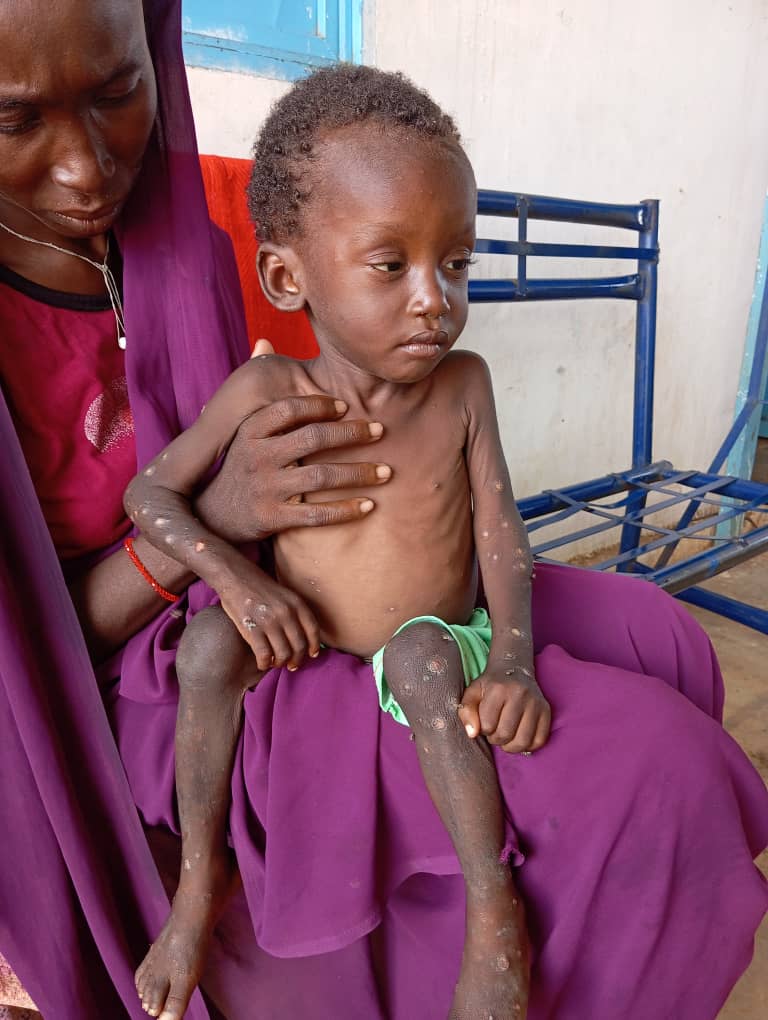
August 6: The UN World Food Programme (WFP) is urgently expanding its emergency food aid in Sudan. About 2,500 Sudanese refugees stranded in Ethiopia plan to return to their country on foot.
August 7: Over 73,000 people are stricken by heavy rains across 11 Sudanese states.
August 8: Children are dying of hunger in Central Darfur and South Kordofan. Khartoum state is witnessing air raids and shelling – after a lull of two months.
August 9: The UNHCR warns that humanitarian needs in Sudan have reached ‘epic proportions’ following heavy rainfall.Experts warn of a disaster if the Jebel Aulia dam in southwest Khartoum is not maintained.
August 10: Prices soar again in Khartoum state amid resurging violence.
August 11: More than 100 villagers are killed in an RSF revenge attack in Sennar. Radio Dabanga receives reports about RSF bombing of the Maternity Hospital in Omdurman, fighting in Khartoum and El Fasher, and targeted attacks by the RSF on villages in El Gezira. Sudanese political, civil society, and rebel groups meet in Addis Ababa to discuss the possibility of a political process for their conflict-torn country.
August 12: Sudan’s Ministry of Health acknowledges the outbreak of cholera in Kassala, El Gezira, and Khartoum. Farmers in eastern Sudan are ‘optimistic’ about the upcoming harvest.
August 13: ‘Outside backers perpetuate the Sudan stalemate‘ says US analyst Cameron Hudson.
August 14: The US-sponsored negotiations in Geneva about a ceasefire and the safe delivery of humanitarian aid start, though both war parties seem to stymie the talks.
August 15: Under pressure of Geneva, the Sovereignty Council decides to open the Adré crossing at the Chad-Darfur border for three months for the transport of aid. Famine is reported from Blue Nile state and the Nuba Mountains in South Kordofan.
August 16: Nearly 30 people are killed in RSF attacks on villages in Sennar and El Gezira. US Envoy Tom Perriello calls the Geneva talks ‘positive’ despite the ‘tragic’ SAF boycott. Flooding of the El Gash River in Kassala kills two.
August 18: Displaced people in Port Sudan are in dire need of aid as ‘relief items are sold in the markets and distributed for political appeasement’.
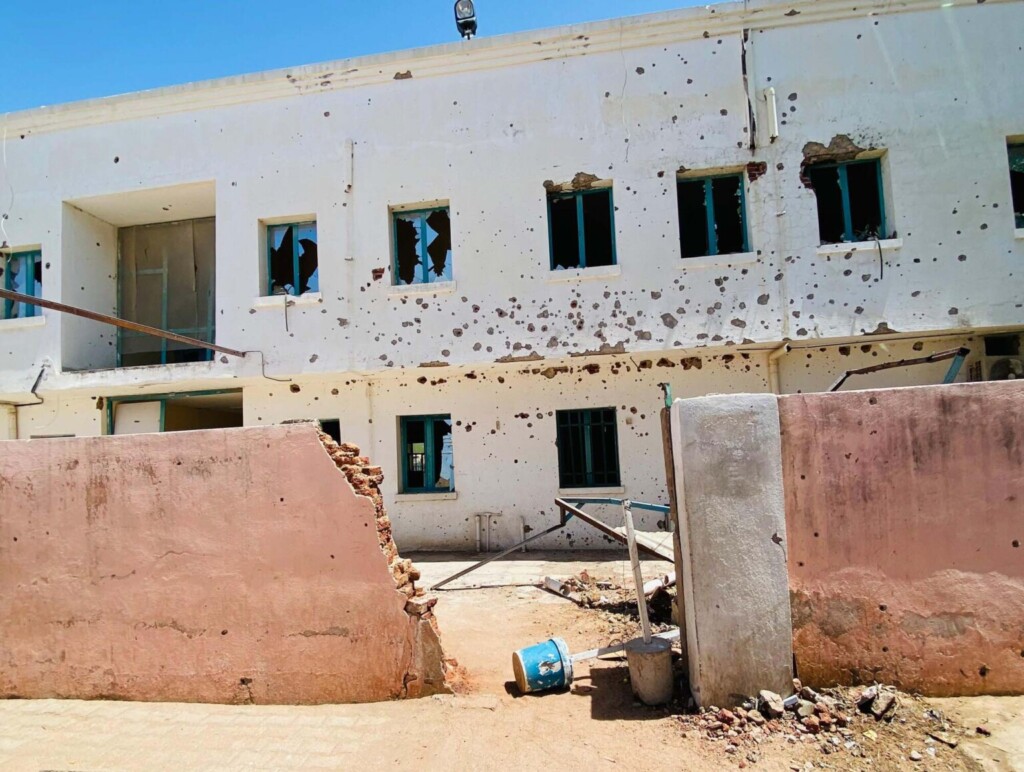
August 19: Battles continue in various places in Sudan, air raids on East Darfur hospital kill four. US Envoy Perriello says that the Geneva talks are pivot to humanitarian aid for Sudan.
August 20: The Egyptian president reaffirms his country’s commitment to ending the violent conflict in Sudan. Cholera spreads further in eastern Sudan.
August 21: The first aid convoy crosses the Chad-Darfur border via Adré. Workers of the Suakin Sea Port in Red Sea state protest new import procedures.
August 22: The Darfuri Revolutionary Awakening Council (RAC), chaired by former Janjaweed leader Musa Hilal, forms the political United Civil Forces alliance.
August 23: ‘With Sudan’s media muzzled, famine ravages a nation in the dark,’ the Sudan Media Forum reports. In El Fasher, besieged by the RSF for months, children are starving. Delegates of countries united in the Aligned for Advancing Lifesaving and Peace in Sudan (ALPS) remain in Geneva ‘to observe the aid transport on the ground’.
August 24: Hunger, shelling, and airstrikes continue to scourge the Sudanese. More than 130 people are reportedly killed following the collapse of the Arbaat Dam near Port Sudan, caused by torrential rains.
August 25: The RSF reaffirm their commitment to the Jeddah Declaration during the Geneva talks. The WFP is ramping up its aid distribution efforts in Sudan, focusing particularly on Darfur. Humanitarian convoys, however, have to deal with the consequences of unusually heavy rainfall.
August 26: Fierce SAF-RSF battles are reported from various places in Sudan, in particular El Fasher and Ed Daein. A convoy of 38 aid trucks cross the reopened the Darfur-Chad border.
August 27: MSF-Holland describes the situation in Sudan as one of the worst MSF is facing worldwide. Flooding in Toker, Red Sea state, displaces around 500 people. Heavy rains in Northern State kill at least nine people.
August 28: The Health Ministry reports that cholera is further spreading in eastern Sudan. Torrential rains destroy 3,000 homes in Abu Shouk camp in El Fasher.
August 29: A high-level UN delegation visits the de facto government in Port Sudan. MSF Sudan accuses the RSF of blocking the delivery of vital supplies for children in Darfur. Sudanese refugees in eastern Chad complaints about rampant insecurity in the region.
August 30: UN human rights experts call for immediate support for the many rape victims in Sudan.
August 31: An airstrike on the Khamsa Dagayeg camp in Zalingei, the capital of Central Darfur, kills at least five.
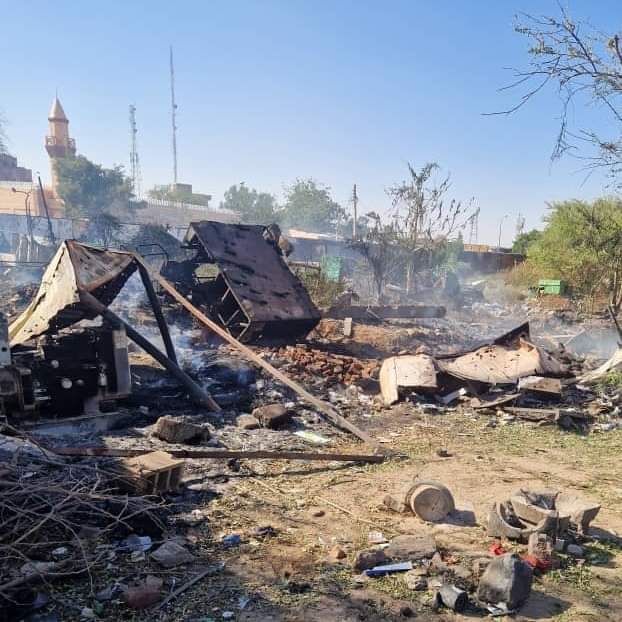
September: Politicians, including the US president, UN officials, and the African Union continue their calls for a ceasefire. While the Sudanese army launches a major ground offensive in Khartoum, El Burhan addresses the UN in New York, condemning the ‘regional support for the RSF’. Relief organisations speak about an ‘immense hunger crisis’ in Sudan. The federal Health Ministry considers the areas under control of the RSF ‘unreachable’. The UN Independent International Fact-Finding Mission for Sudan proposes a ‘peacekeeping mission’ to counter the ‘appalling human rights violations’ in the country. El Burhan’s visit to China ‘secures major deals’ for the Sudanese government.
September 1: Cholera is further spreading in northern Sudan.
September 2: The number of people dying from hunger is rapidly growing in South Kordofan.
September 3: Sudan’s acting Minister of Agriculture denies ‘any signs of a famine’ in the country. The USAID deputy administrator warns that the humanitarian crisis in Sudan has reached ‘dangerous levels’. The Norwegian Refugee Council, the Danish Refugee Council and Mercy Corps call on the international community ‘to address the immense hunger crisis’ in Sudan. El Burhan’s visit to China secures major deals for the Sudanese government. The African Centre for Justice and Peace Studies (ACJPS) expresses its ‘deep concern’ about the increased targeting of civilians in Kassala by security officers.
September 4: The Sudanese suffer from a severe cash shortage and steep interest rates.
September 5: Sudan closes its El Gedaref border crossing with Ethiopia as Fano militiamen tighten their control over the Ethiopian-Sudanese border.
September 6: The first report by the UN’s Independent International Fact-Finding Mission for Sudan urges the intervention of a ‘peacekeeping mission’ to counter the ‘appalling human rights violations’ in the country. The Sudan Media Forum reports that the federal Health Ministry considers the areas controlled by the RSF as ‘unreachable’. RSF soldiers detain three Umma Party leaders in West Kordofan.
September 7: The Sudanese government queries the UNHCR over alleged RSF misuse of relief material. Eritrea closes its border with Kassala to prevent the spread of cholera and conjunctivitis.
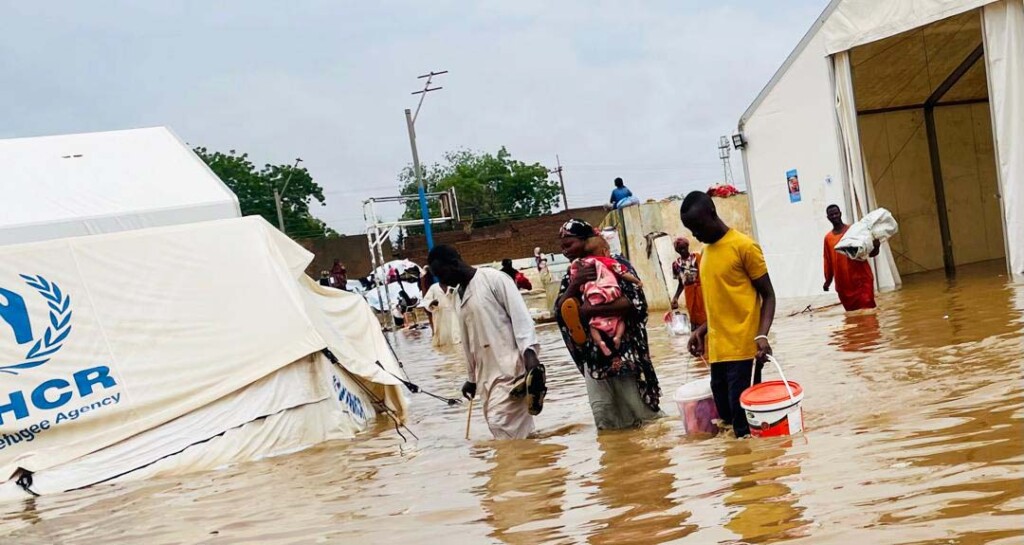
September 8: Sudan’s health crisis is ‘falling on deaf ears’ in the world, says the WHO chief visiting Port Sudan. Floods have displaced over 172,000 people since June.
September 9: Human Rights Watch (HRW) calls for an nation-wide arms embargo in Sudan.
September 10: More than 20 per cent of the Sudanese population has fled their homes. Fatal cases of dengue fever are reported from Khartoum North.
September 11: The UN Security Council unanimously votes to extend the sanctions, including an arms embargo, against Sudan. Home-grown crops provide ‘some relief’ to Darfur displaced. Environmentalists warn of the destruction of forests in El Gezira, as charcoal production has become a source of income.
September 12: Battles continue in Darfur and Khartoum, a drone is shot above Shendi. Both SAF and RSF fighters post ‘self-incriminating videos of torture‘ on social media.
September 13: The Sudan Media Forum reports about the desperate attempts of Sudanese to reach Libya. The high-tempo combat activities in El Fasher, the capital of North Darfur, are likely ‘to reduce the city to rubble‘.
September 14: The Sudanese Air Force bombs its own soldiers in North Darfur, US officials repeat calls for a ceasefire.
September 15: The Forces for Freedom and Change-Democratic Bloc convening in Cairo calls for ‘global action to open vital aid routes’. The UN humanitarian coordinator for Sudan says that the violence in the North Darfur capital ‘is heartbreaking and must stop’.
September 16: More than 10 people in Khartoum North die daily from hunger and shelling. Obstacles mount for South Sudan’s oil transport through Sudan. According to Moroccan journalist Aicha el Basri, the problem of Sudan, as with the rest of the Arab world, is the failure to build a national state.
September 17: US President Joe Biden condemns the ongoing conflict in Sudan. MSF says that water and sanitation crises are fuelling the hepatitis-E outbreak in Abyei.
September 18: The UN renews its urgent call for a ceasefire in Sudan. At least 45 die in a drone strike on a bus south of Khartoum. The Sudanese Emergency Operations Centre reports 399 new cases of cholera across five states.
September 19: Egyptian Foreign Minister Badr Abdel Aty tells his US counterpart Antony Blinken that the SAF ‘should not be associated with any political party‘.
September 21: Shortages of cash exacerbate the suffering in Darfur and Kordofan.
September 22: The European Union warns of new sanctions as the violence in El Fasher further escalates. Deposed dictator Omar Al Bashir has been transferred to Merowe in Northern State for medical treatment.
September 23: US President Biden and his deputy discuss the Sudanese conflict with the president of the Emirates. The cholera outbreak in northern Sudan forces schools and markets to close.
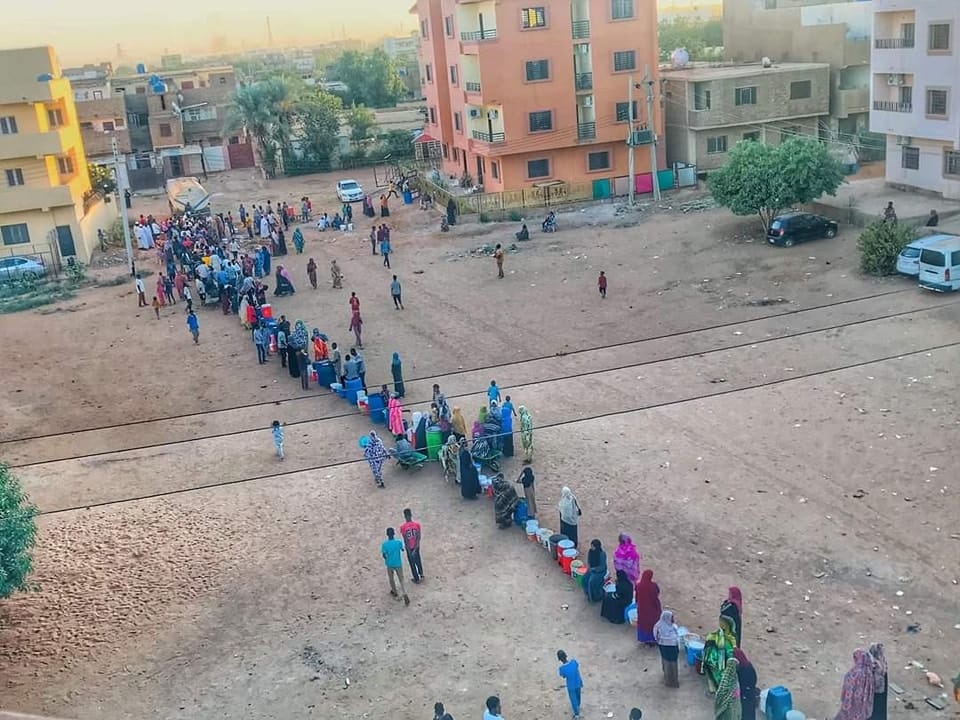
September 24: The UN humanitarian coordinator calls on world leaders ‘to step up to end the devastating conflict in Sudan’. US President Biden calls on world leaders to ‘stop arming the generals’ of Sudan. The African Union urges a ceasefire as violence escalates in North Darfur.
September 25: UN Secretary-General Guterres shares his concerns about the escalation of the war with El Burhan.
September 26: The Sudanese army launches a major ground offensive in key areas of Khartoum. El Burhan addresses the UN in New York, condemning the ‘regional support for the RSF’. The UN Gender Alert reports that the Sudan war doubled the violence against women and girls.
September 27: The SAF-RSF battles for Khartoum and El Fasher continue, clashes reported from western El Gedaref. The Sudan People’s Liberation Movement-North led by Abdelaziz El Hilu (SPLM-N El Hilu) announces that more than three million people face famine in southern Sudan, while ‘aid delivery is obstructed’.
September 28: Sudanese artists have launched the Sudan Voice from the World campaign to support those affected by the war in their country.
September 29: Sudanese army soldiers enter Khartoum North, the Darfur joint force combs El Fasher. Schools in Kassala reopen after the number of cholera cases decreased. Children in South Kordofan die after eating toxic herbs to stave off hunger.
September 30: Battles persist in Khartoum state, governor calls for support for people in Khartoum Bahri, where dozens of young men are arbitrarily shot dead, allegedly by an Islamist militia fighting alongside the SAF. Air raids target Kutum in North Darfur, as El Fasher witnesses violent SAF-RSF battles and the joint force of Darfur rebel combatants clash with RSF troops in West Darfur. ACJPS reports a surge in forced prostitution in South Darfur.
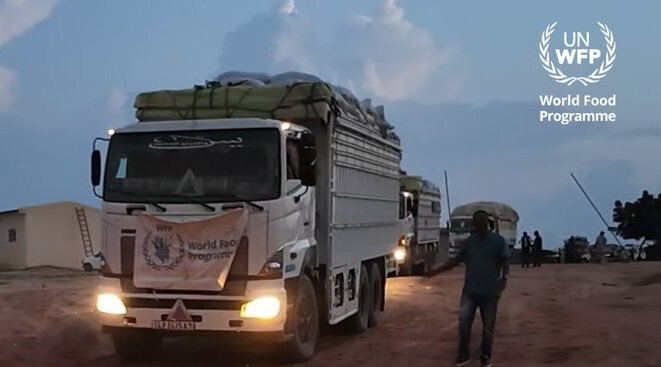
Previous timelines
Sudan timeline April-June 2024: Sudan war ‘remains overlooked by international community’
Sudan timeline January-March 2024: Sudan becomes ‘the largest humanitarian crisis in the world’
Sudan timeline October-December 2023: War deepens Sudan’s suffering
Sudan timeline July-September 2023: Sudanese ‘in survival mode’
Sudan timeline April-June 2020: Covid-19 marks all aspects of life, inflation soars
Sudan timeline January-March 2020: Little relief to the country’s economic, security woes
Sudan timeline October-December 2019: Interim government put to the test
Sudan timeline July-September 2019: Turbulent transformation from tyranny








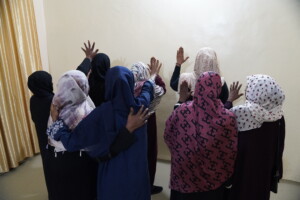


 and then
and then